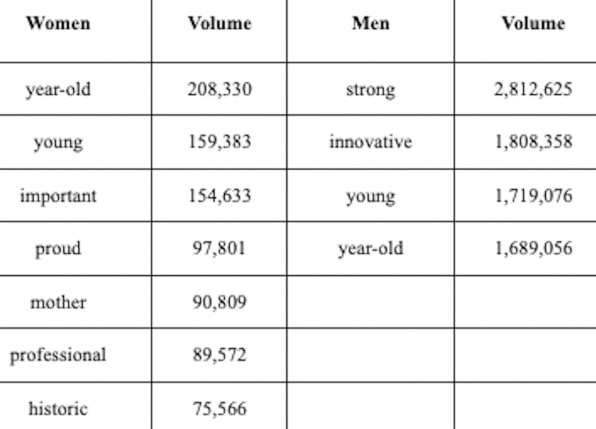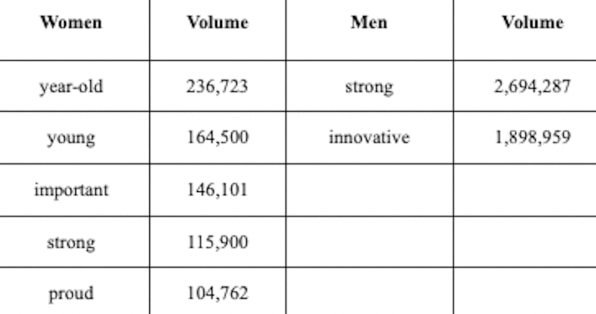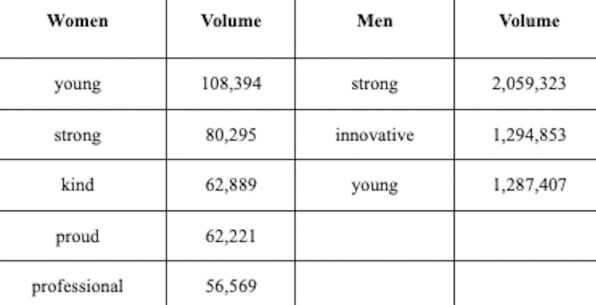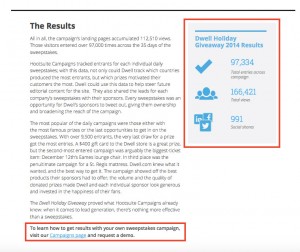By Emily Price
When it comes to media coverage about female business leaders, mainstream outlets are forever preoccupied with age.
That’s according to a new analysis by Cision, a platform for marketing and PR professionals. It took a look at the most commonly used adjectives to describe C-level leaders in print, broadcast, and online media coverage. For women, the adjectives “year-old” and “young” topped the list. In contrast, the adjectives most used to describe men in leadership positions were “strong” and “innovative.”

[Cision]
“The difference between the way women are discussed and the way men are discussed casts women and men in a different light,” Karen Stockert, Cision’s client insights manager, tells Fast Company. “Women are not given the same credibility as men are and there’s some language being used, intentionally or not, that’s taking some of their credibility and power away, because the consumers and the people reading that content are picking up on that.”

[Cision]
For instance, another top adjective used to refer to women leaders is “professional.” While seemingly appropriate, it’s an adjective that someone would likely not use about a male leader—because the “professional” aspect is implied. And it’s been happening for a while. Cision data shared with Fast Company shows similar patterns for at least the last three years.

[Cision]
Stockart says it’s important to understand the subtlety of how language is being used. Of course, a female leader holding a C-level position is a “professional,” so is it necessary to say it? By nature of including it in stories, news outlets suggest that it is.
“There’s still work to do in terms of helping communicators not distract from the accomplishments of female leaders,” Stockart says. Focusing on attributes such as age or motherhood can put female leaders into a different light than that of their male peers, despite their accomplishments.
The goal should be language that celebrates and elevates female leaders, but also puts them on equal footing with their male peers. “It’s subtle, but consumers are paying attention to those language choices,” Stockart says. “Staying abreast and staying informed and cognizant of those choices is critical.”

(32)
Report Post





